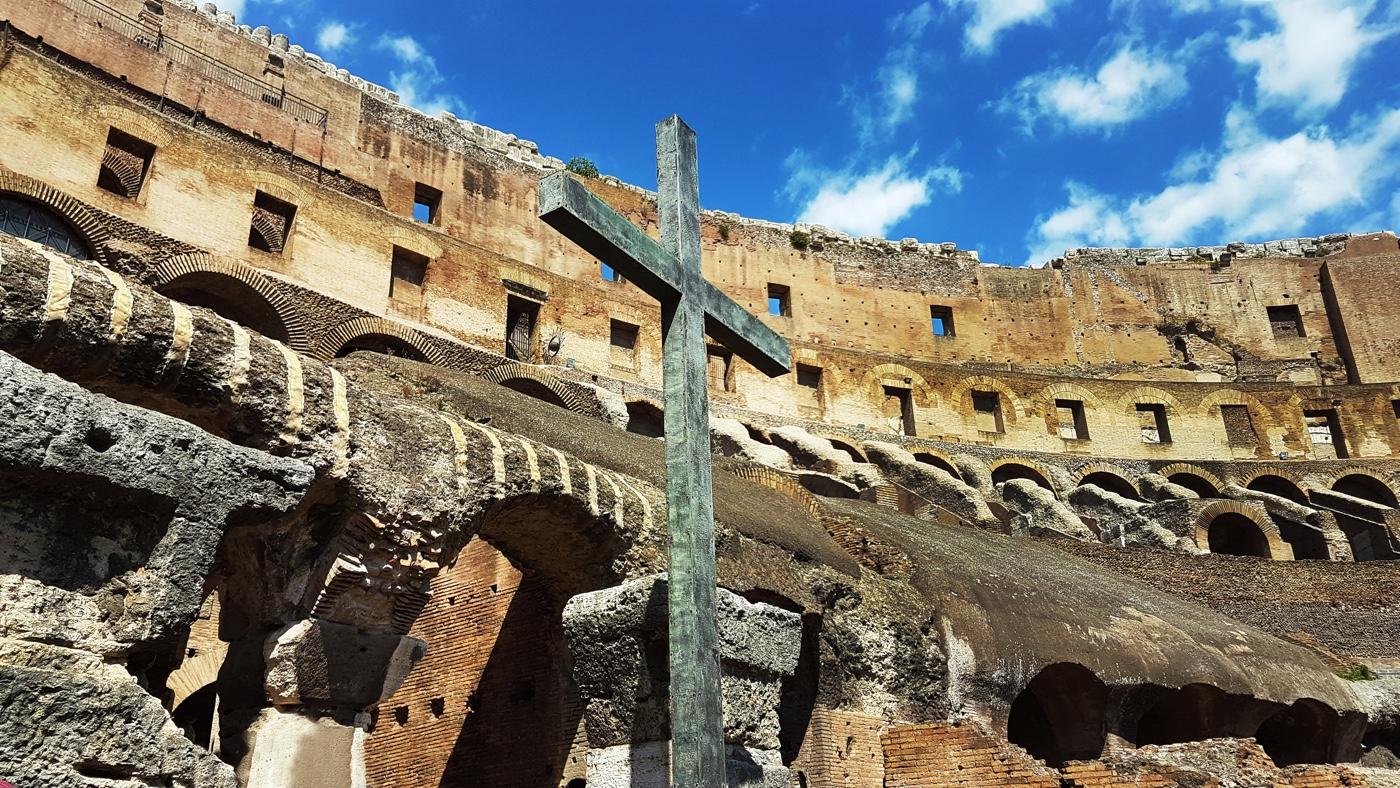Sentenced to Die
Late that night. Jesus was taken by the Temple guards to the palace of Caiaphas, the High Priest.
Many of the Jewish leaders were summoned there for the trial, although it was very late.
Peter secretly followed Jesus through the streets to the palace courtyard.
As he stood with some of the guards, warming himself by their fire, a servant girl walked past and looked at him.
'You were with Jesus of Nazareth, she said. ;I don't know what you mean, answered Peter.
A little while later, another servant said to him; 'This man was with Jesus. 'I don't know him." swore Peter.
As Peter stood talking to the guards, a man said; 'You must know Jesus. I can tell you come from Galilee.
Peter was very frightened. 'I tell you. I don't know the man, he shouted.
At that moment, a cock crowed three times, and Peter remembered that Jesus had told him he would deny knowing him three times.
Joseph, a rich man from Arimathea, who believed in Jesus, went to Pontius Pilate, the Roman Governor.
He asked for permission to take Jesus away for burial. Pontius Pilate agreed and ordered that Joseph should be given the body.
Peter was so appalled by what he had done, he ran out of the courtyard and hid in a dark comer. Where he cried bitter tears of shame.
In the palace, the Chief Priests and the Jewish leaders began the trial of Jesus.
They brought in many people who had been bribed to tell lies about Jesus, but their stories didn't match up.
The leaders wanted to find an excuse to kill Jesus but, however hard they tried, they couldn't prove that he had done anything wrong.
All through the trial. Jesus said nothing, and wouldn't answer any of the charges.
At last, the High Priest questioned Jesus, 'Why won't you answer? He asked, but Jesus didn't reply.
Then the High Priest asked if he was the Son of God. 'I am, replied Jesus, quietly.
'You heard what the prisoner said, declared the High Priest to the people. 'We don't need any more witnesses.
He claims to be equal with God, and that is blasphemy.
Do you find him guilty or not guilty?
Guilty, shouted the people, And they hit Jesus and spat at him.
The High Priest sentenced Jesus to death, but before he could have Jesus killed, he had to have permission from Pontius Pilate, the Roman Governor.
Only the Roman Governor could give the order for an execution.










Comments
Post a Comment